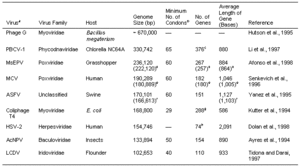Molluscum contagiosum
For the course duration, the article is closed to outside editing. Of course you can always leave comments on the discussion page. The anticipated date of course completion is May 21, 2009. One month after that date at the latest, this notice shall be removed. Besides, many other Citizendium articles welcome your collaboration! |
| Molluscum Contagiosum Virus | ||||||||
|---|---|---|---|---|---|---|---|---|
| [[image:|200px|]] | ||||||||
| Scientific classification | ||||||||
|
Introduction
Molluscum Contagiosum Virus was first described and later it was named by Bateman in the early nineteenth century.[1] Over time, there was more cases that were described and similar to this virus, and overtime there was more and more information gathered on this. Goodpasture later described the similarities of molluscum and vaccinia.[2] Molluscum Contagiosum Virus is a poxvirus, which is a member of the family Poxviridae. Poxvirus are viruses that can be a family that infect both vertebrate and invertebrate animals. Molluscum contagiosum is a viral infection that seems to cause lots of papules or nodules on the skin. This disease it thought to infect humans only, but there has been cases where they found animals with Molluscum Contagiosum. This virus is said to be most common in children, but is found in sexually active adults, and those that are not immuned.
Description and Significance
There are various types of Molluscum Contagiosum Virus, and they are most commonly seen on humans, but have been found to be on animals such as chickens, horses, oxes, cows, etc. On humans, they are seen on children and sexually active adults. This virus is very contagious that can spread by contact of infected individuals or by association with fomites. Fomites being infected clothes,
Taxonomy
To explain this further, Molluscum Contagiousum is a poxviruses from the family of Poxviridae. There are four genera, which are Orthopox, Parapox, Yatapox, and Molluscipox. Molluscipox gives rise to the virus Molluxcum Contagiosum. The name for Poxviridae viruses comes from the original grouping of the virus related with the disease that produced poxes on the skin. The subfamily is Chordopoxvirinae, with the Genus Molluscipoxvirus, and the species being MCV. Types of Viruses for each genera: Orthopox: variola virus, vaccinia virus, cowpox virus, monkeypox virus, smallpox ; Parapox: orf virus, pseudocowpox, bovine papular stomatitis virus; Yatapox: tanapox virus, yaba monkey tumor virus; Molluscipox: molluscum contagiosum virus (MCV).[3]
Genome Structure
[4]. By the colaboration of information from experiments conducted over the years by Tatiana G. Senkevicha, Eugene V. Kooninb, Joachim J. Bugertc, a, Gholamreza Daraic and Bernard Mossa, we discovered that the Molluscum Contagiosum Virus is a non-segmented molecule of double-stranded linear DNA with 180,000 to 200,000 nucleotides.It is said that there are 160 genes identified which encode 182 proteins. Among those, 105 proteins are counterparts in OPV (''Orthopoxviruses''). The OPV protein are considered to be the essential proteins for replication, and is noted that these proteins are highly conserved in MCV when undergoing transcription. There are twenty MCV proteins with OPV counterparts that have their own homologs, and some even have their own functional motifs. Despite other factors, the physical order and regulation of essential ancestral poxvirus genes have been largely conserved in these MCV's and OPV's. [5]The picture on the right is a table of Genomic information on various viruses.
Pathology
Prognosis
Current Research
Reference
- ↑ Bateman F. Molluscum contagiosum. In: Shelley WB, Crissey JT, eds. Classics in Dermatology. Springfield IL; Charles C Thomas, 1953, p20.
- ↑ Bretz S. Molluscum Contagiosum. Emedicine Juournal April 25,2001;2(4).http://dermatology.cdlib.org/92/reviews/molluscum/diven.html#1
- ↑ http://en.wikipedia.org/wiki/Poxviridae
- ↑ Etten, James L. Van (2002) http://www7.nationalacademies.org/ssb/nanopanel2vanetten-1.gif
- ↑ Tatiana G. Senkevicha, Eugene V. Kooninb, Joachim J. Bugertc.Received 18 February 1997; revised 26 March 1997; accepted 15 April 1997. ; Available online 12 April 2002. http://www.sciencedirect.com/science?_ob=ArticleURL&_udi=B6WXR-45K15Y8-6D&_user=10&_rdoc=1&_fmt=&_orig=search&_sort=d&view=c&_acct=C000050221&_version=1&_urlVersion=0&_userid=10&md5=54d0c349fe732cbe9bf360a3a8090d03#bm4.1

